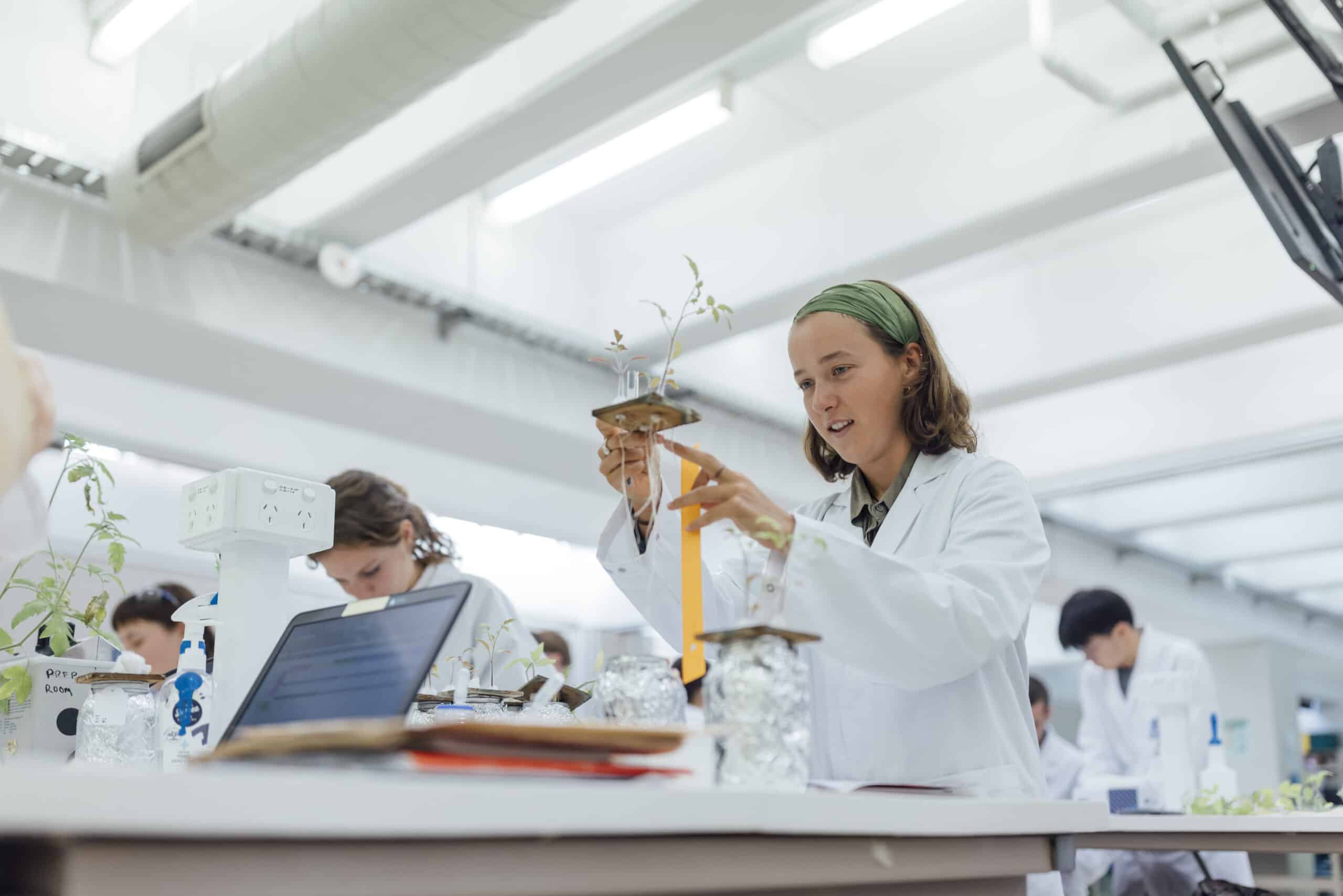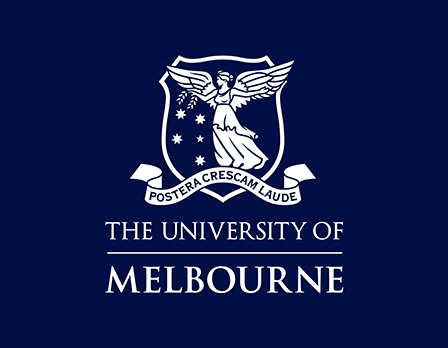Fun, rewarding, and challenging — that’s how Danielle Tang from China would describe her time at the University of Melbourne.
Danielle studied in Singapore before heading to Melbourne to pursue a Bachelor of Agriculture (Honours). She knew the University of Melbourne was prestigious, located in one of the most liveable cities in the world and that her programme was a pathway to further opportunities in agriculture and beyond. Still, there were plenty more to impress her once she arrived.
“What I didn’t expect when I entered this degree was the diverse range of subjects with a multidisciplinary approach, delivered by high-achieving scholars and industry professionals,” says Danielle.
As someone passionate about animal science, the programme stood out to her for several reasons. “We are offered numerous opportunities to be closer to nature, work with animals, and have hands-on experience to apply what I’ve learned,” she shares.

Danielle Tang diligently engaged in her studies at the University of Melbourne. Source: University of Melbourne
Danielle experienced the best of both worlds while studying at the during her second year. Home to over 8,000 merino sheep, a robotic dairy, a working winery and brewery, an orchard, and a natural bush reserve, the campus was a living laboratory for researchers and students to work together to test and learn in real-time. “I think the best way to learn agriculture is actually to immerse yourself in that kind of farming environment,” says Danielle.
Her other learning site was a new life sciences building at the Parkville campus worth 100 million Australian dollars and includes large practical teaching laboratories, an object-based learning facility and classrooms for small group and problem-based learning, as well as informal learning and study spaces.
Such sophisticated spaces are open to all who come to the University of Melbourne with agricultural aspirations. The University offers programmes in a wide range of fields within agricultural sciences, including business, sustainability, engineering and technology.

The University of Melbourne is #1 in Australia and #14 in the world (QS World University Rankings 2024). Source: The University of Melbourne
Diverse curriculum for future agricultural leaders
Students are free to explore their interests in the first year of their Bachelor of Agriculture. In their second year, they will choose a major and specialise in Production Animal Science, Plant and Soil Science, or Agricultural Economics.
That flexibility gave Danielle time to see where her passions and skills lie — plus a chance to soak up a new culture and environment. During an exchange programme in New Zealand, she not only got to dive deeper into wine and viticulture but also found a calling in food science — so much so that she chose to specialise in plant and soil science. During her honours year, Danielle explored machine learning and how it can be applied to viticulture under the supervision of Associate Professor Sigfredo Fuentes. Here, she combined her interest in viticulture, machine learning and digital agriculture technologies.
Experienced and dedicated teaching faculty
The University of Melbourne’s teaching staff are experts who are frequently engaged with research that is current in their respective fields. “It enables us to maintain connections with what is happening out in the agricultural world and ensures that we are teaching graduates the things they are going to need when they go out into the world,” says Helen Suter, an Associate Professor at the School of Agriculture, Food and Ecosystem Sciences within the Faculty of Science.
Small classes ensure each student receives personalised support from these experts. In the Bachelor of Agriculture programme, lecturers like Suter could break down complex subjects like chemistry or genetics into the impact students can bring to other people in the future with their newfound knowledge. By pairing each new student with an academic advisor and student mentor, students get more in-depth support and help to adapt to their new environment.
Close connection to the industry
Programmes are designed in consultation with industry and employers. Danielle particularly enjoyed the industry internship and project she completed during her degree. During her internship, she looked into how to build a smart dairy farm. For her industry project, she worked alongside supervisors to pursue a one-semester research project.

The University of Melbourne is ranked eighth for graduate employability worldwide. Source: QS Graduate Employability 2022.
Positive graduate outcomes
Upon completing her degree, Danielle has come far. She’s on the brink of completing her PhD. In the future, Danielle hopes to create a spatial mapping tool for lentils and farming growers.
“We are aiming to use the satellite images to create a map for them to know beforehand where to go and how they can be more effective with their harvesting,” she shares. “Beyond that, I’m passionate about using technology to transform agricultural practice.”
Such a mindset is precisely why both undergraduate and postgraduate graduates from the University are highly sought after in the field. It cements the University’s reputation as being in the top 10 for graduate employability worldwide, and the demand for employment, with six jobs to every agriculture graduate in 2022.
Eager to be part of this community? Click here to learn how you can be one of them today.
Follow the University of Melbourne on Facebook, X, LinkedIn and Instagram.











